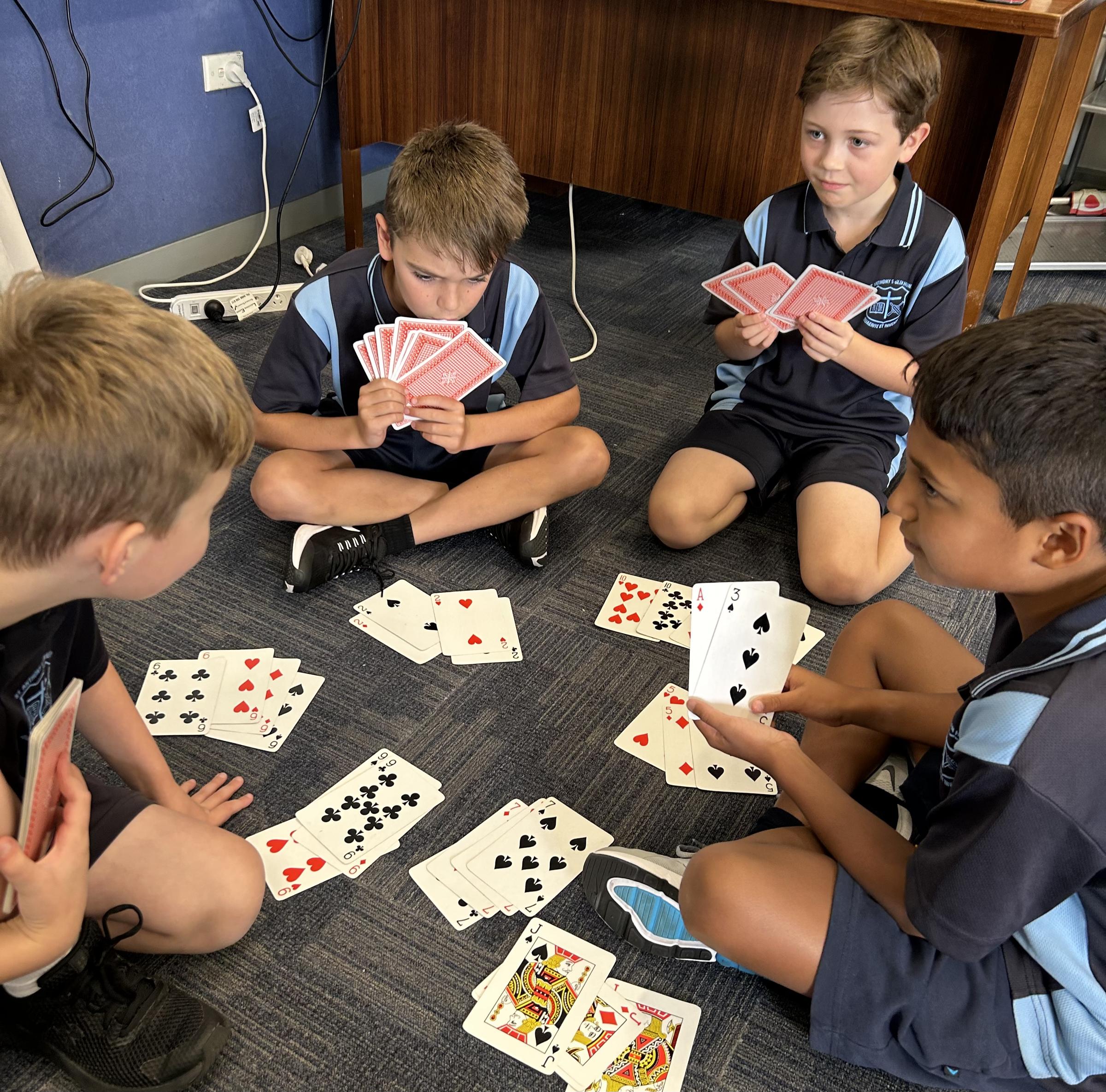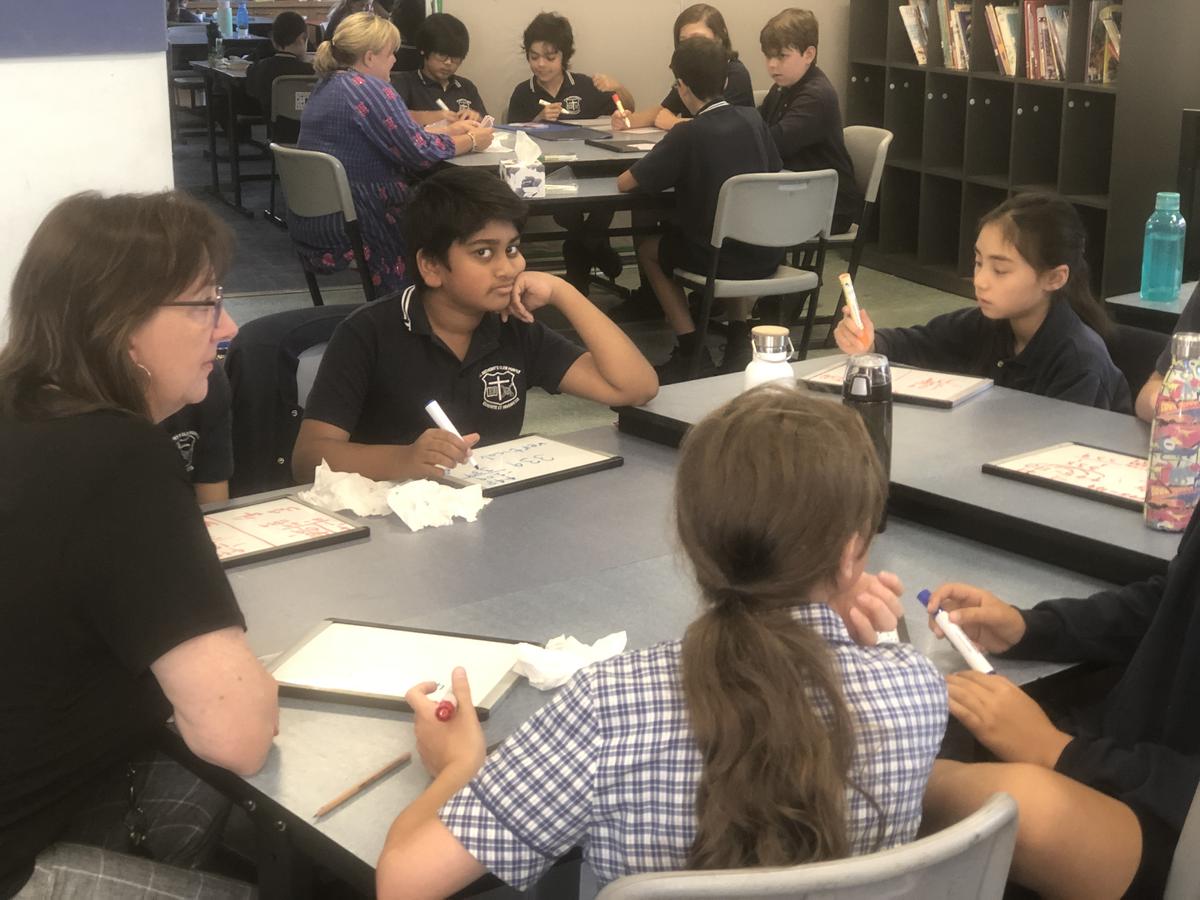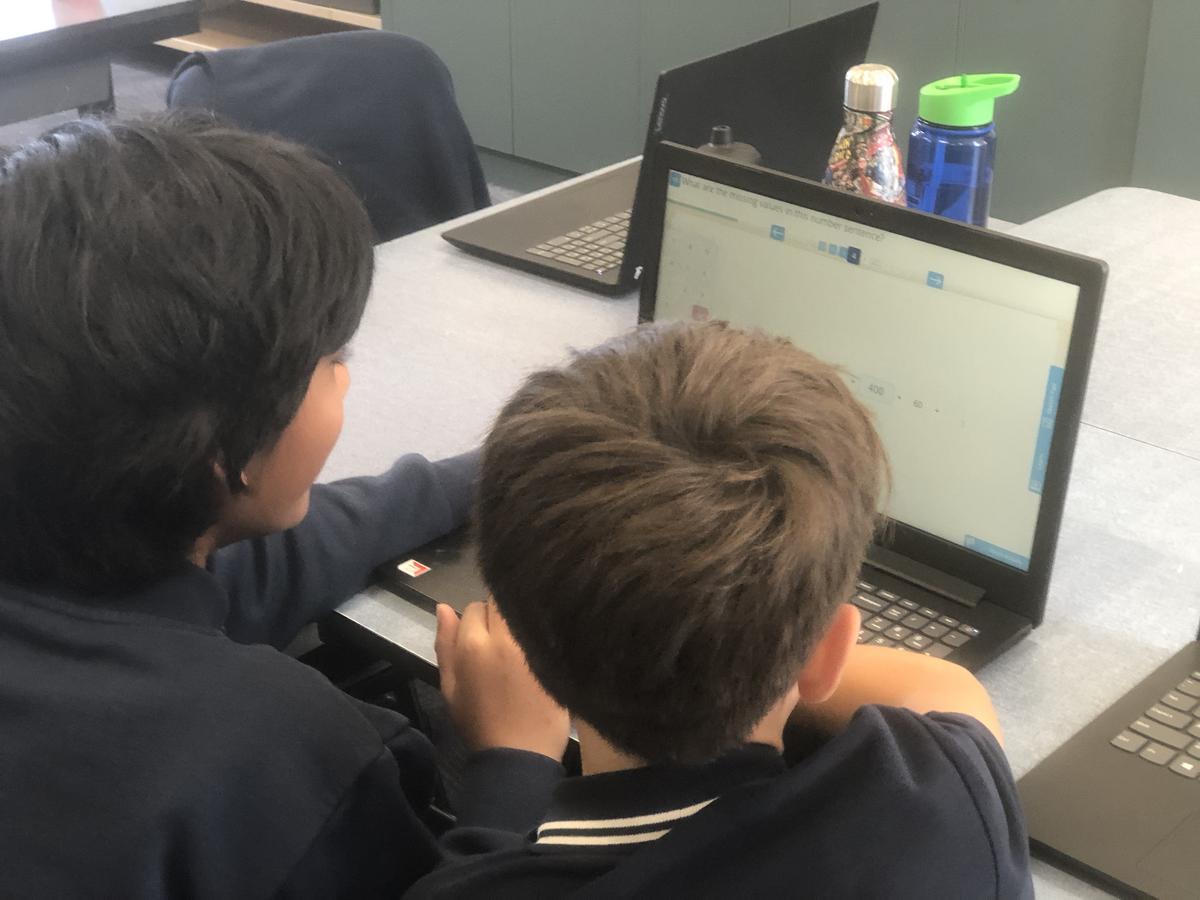Mathematics

Mathematics in the Classroom
In our Year 5/6 classes this term students have been learning about whole number problem solving, using different strategies to solve mental and written problems including both positive and negative numbers.
Students have been working in groups throughout the lessons, rotating through different activities throughout the week. This has allowed students to develop not only their Mathematics skills, but communication and cooperation skills too. Students are given opportunities to work together to solve challenging tasks, work with teachers to develop individual skills and play maths games to reinforce skills being learnt through the week. All students in Year 5/6 have been engaged and excited to participate in Maths lessons and have already shown great growth in their Mathematics learning this year!
Mathematics at Home
Helping your kids to do Maths at home can be a positive experience. The Mathematics Association of Victoria provides their top 5 tips on how to make learning mathematics at home a positive experience for both parents and children.
- LEARNING MATHS IS ABOUT STRATEGIES
Much of the actual maths is the same as what you may have learnt. Although learning maths is becoming more about understanding the reasoning and using a variety of different strategies to do maths. The strategies you learnt at school are still valid too! Teachers value students using many strategies to solve problems and develop thinking. - ASK QUESTIONS
You don’t have to know the answers! Nor do you have to know how to get there. Just ask questions and let your child think it through. Here are some of our favourites: • What thinking did you use to get this far? • What else could you try, is there another way? • What could the next step be? • How could you find out more about what to do? • Do you think others may do something different? - BE PERSISTENT, LEARN TOGETHER Maths can be challenging. Rather than saying ‘I can’t do that’, or ‘It’s too hard’, say ‘I can’t do that yet,’ or ‘We will work it out together’. Research shows parental support is a major factor in student success at school. Celebrate achieving small steps in solving a problem. Persist, be supportive and remember to focus on the thinking, not getting answers.
- SEE MATHS EVERYDAY
There is plenty of maths around you to develop numeracy skills, such as calculating, measuring, using numbers, interpreting data and graphs, recognising patterns, and using language to develop mathematical understanding. Ask questions about the maths in activities like cooking, exercise, sport, budgeting and shopping. Playing games is also a fun way to practice and experience maths. - STAY POSITIVE, KEEP CALM
Don’t pass on your baggage, this is not about you! Let your children experience maths positively, we need maths for everyday life, and maths graduates have excellent career opportunities. Don’t say ‘I was never good at maths’ or ‘I never liked maths’. Maths can, and should be, really fun!
Melanie Norton
Maths Leader






